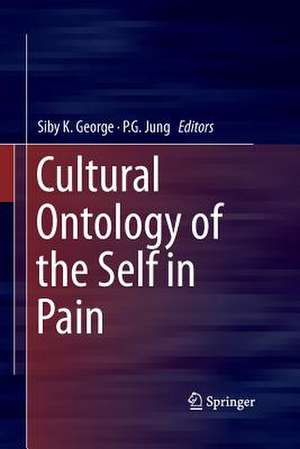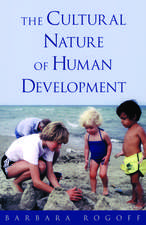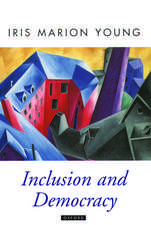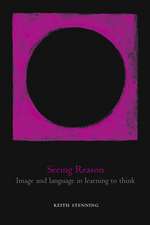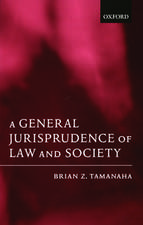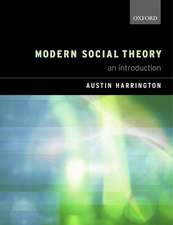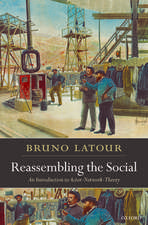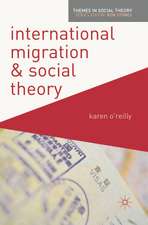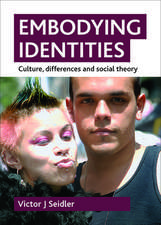Cultural Ontology of the Self in Pain
Editat de Siby K. George, P.G. Jungen Limba Engleză Paperback – 23 aug 2016
The general ontological features of the self in pain and culturally imbued dimensions of pain-experience are, thus, brought together in a rare blend in this Volume. The essays dwell on the importance of understanding what cultural, social and political forces outside our control do to our pain-experience. They show why such understanding is necessary, both to humanely deal with pain, and to rectify erroneous approaches to pain-experience. They also explore the thoroughly ambivalent spaces between pain and pleasure, and the cathartic and productive dimensions of pain. The essays in this Volume investigate pain-experiences through the fresh lenses of history, gender, ethics, politics, death, illness, self-loss, torture, shame, dispossession and denial.
| Toate formatele și edițiile | Preț | Express |
|---|---|---|
| Paperback (1) | 388.72 lei 6-8 săpt. | |
| Springer India – 23 aug 2016 | 388.72 lei 6-8 săpt. | |
| Hardback (1) | 393.06 lei 39-44 zile | |
| Springer India – 30 sep 2015 | 393.06 lei 39-44 zile |
Preț: 388.72 lei
Nou
Puncte Express: 583
Preț estimativ în valută:
74.38€ • 77.82$ • 61.79£
74.38€ • 77.82$ • 61.79£
Carte tipărită la comandă
Livrare economică 03-17 aprilie
Preluare comenzi: 021 569.72.76
Specificații
ISBN-13: 9788132229933
ISBN-10: 8132229932
Pagini: 288
Ilustrații: XV, 288 p.
Dimensiuni: 155 x 235 mm
Greutate: 0.43 kg
Ediția:Softcover reprint of the original 1st ed. 2016
Editura: Springer India
Colecția Springer
Locul publicării:New Delhi, India
ISBN-10: 8132229932
Pagini: 288
Ilustrații: XV, 288 p.
Dimensiuni: 155 x 235 mm
Greutate: 0.43 kg
Ediția:Softcover reprint of the original 1st ed. 2016
Editura: Springer India
Colecția Springer
Locul publicării:New Delhi, India
Cuprins
Chapter 1: Introduction: Cultural Ontology of the Self in Pain.- PART-I: Ontology of Pain.- Chapter 2: Ontology of Pain in Moral Theories.- Chapter 3: The Familiar Stranger: On the Loss of Self in Intense Bodily Pain.- Chapter 4: Waiting to Speak: A Phenomenological Perspective on our Silence around Dying.- Chapter 5: Pain and Catharsis in Art, Ritual and Therapy.- Chapter 6: Traditional Philosophies and Gandhi’s Approach to the Self in Pain.- PART-II: Culture, Politics and Ethics of Pain.- “Hurt” by Daniel Becker.- Chapter 7: The Infinite Faces of Pain: Narrative, Eros, and Ethics.- Chapter 8: Shame, Placebo and World-Taking Cognitivism.- Chapter 9: Self and Suffering in Buddhism and Phenomenology: Existential Pain, Compassion and the Problems of Institutional Healthcare.- Chapter 10: Many Faces of Woman’s Pain.- Chapter 11: Pain and Agency: On the Essential Importance of Vulnerability and Transgression.- PART-III: Social Contexts of Pain.- Chapter 12: Dislocations, Marginalisations, Past and Present: Pain-Experiences Two Marginalised Communities.- Chapter 13: AFSPA and the Tortured Bodies: The Politics of Pain in Manipur.- Chapter 14: Medical Mission and the Interpretation of Pain.
Notă biografică
Siby K. George is Associate Professor of Philosophy at the Department of Humanities and Social Sciences, Indian Institute of Technology Bombay, Mumbai, India. He has previously been Lecturer of Philosophy at the Department of Humanities and Social Sciences, National Institute of Technology, Silchar, Assam. His area of research is twentieth-century Continental Philosophy, and he writes on development, suffering, community, environment, selfhood, agency and the like from a critical-phenomenological perspective, paying special attention to non-western contexts. He is author of Heidegger and Development in the Global South (2015, Springer; series: Contributions to Phenomenology, 82). On the theme of pain and illness, he has published “Wellness in Illness” (Samyukta: A Journal of Women’s Studies XI:2, 2011). His paper “The Affected Subject and the Case of Individuating Pain” is slated to be part of a forthcoming collection of essays on consciousness, subjectivity and otherness.
P. G. Jung is Associate Professor of Philosophy at the Department of Humanities and Social Sciences, Indian Institute of Technology Bombay (IITB), Mumbai, India. He is currently Fellow at the Indian Institute of Advanced Study, Shimla. His publications are largely in the field of philosophy of language, history of ideas, and the philosophy of everydayness. His two manuscripts, “Reading Wittgenstein all over again” and “Conceptualizing corruption through the corruptibilit
y of the self,” are currently being readied for publication.
P. G. Jung is Associate Professor of Philosophy at the Department of Humanities and Social Sciences, Indian Institute of Technology Bombay (IITB), Mumbai, India. He is currently Fellow at the Indian Institute of Advanced Study, Shimla. His publications are largely in the field of philosophy of language, history of ideas, and the philosophy of everydayness. His two manuscripts, “Reading Wittgenstein all over again” and “Conceptualizing corruption through the corruptibilit
y of the self,” are currently being readied for publication.
Textul de pe ultima copertă
The mainstream approach to the understanding of pain continues to be governed by the biomedical paradigm and the dualistic Cartesian ontology. This Volume brings together essays of scholars of literature, philosophy and history on the many enigmatic shades of pain-experience, mostly from an anti-Cartesian perspective of cultural ontology by scholars of literature, philosophy and history. A section of the essays is devoted to the socio-political dimensions of pain in the Indian context. The book offers a critical perspective on the reductive conceptions of pain and argue that non-substance ontology or cultural ontology supports a more humane and authentic understanding of pain.
The general ontological features of the self in pain and culturally imbued dimensions of pain-experience are, thus, brought together in a rare blend in this Volume. The essays dwell on the importance of understanding what cultural, social and political forces outside our control do to our pain-experience. They show why such understanding is necessary, both to humanely deal with pain, and to rectify erroneous approaches to pain-experience. They also explore the thoroughly ambivalent spaces between pain and pleasure, and the cathartic and productive dimensions of pain. The essays in this Volume investigate pain-experiences through the fresh lenses of history, gender, ethics, politics, death, illness, self-loss, torture, shame, dispossession and denial.
The general ontological features of the self in pain and culturally imbued dimensions of pain-experience are, thus, brought together in a rare blend in this Volume. The essays dwell on the importance of understanding what cultural, social and political forces outside our control do to our pain-experience. They show why such understanding is necessary, both to humanely deal with pain, and to rectify erroneous approaches to pain-experience. They also explore the thoroughly ambivalent spaces between pain and pleasure, and the cathartic and productive dimensions of pain. The essays in this Volume investigate pain-experiences through the fresh lenses of history, gender, ethics, politics, death, illness, self-loss, torture, shame, dispossession and denial.
Caracteristici
New essays on pain-experiences from the standpoint of cultural ontology Studies on historical, gendered, ethical, political, cathartic and productive dimensions of pain Original perspectives on dying, illness, self-loss, torture, medical eros, shame, dispossession and denial Includes supplementary material: sn.pub/extras
